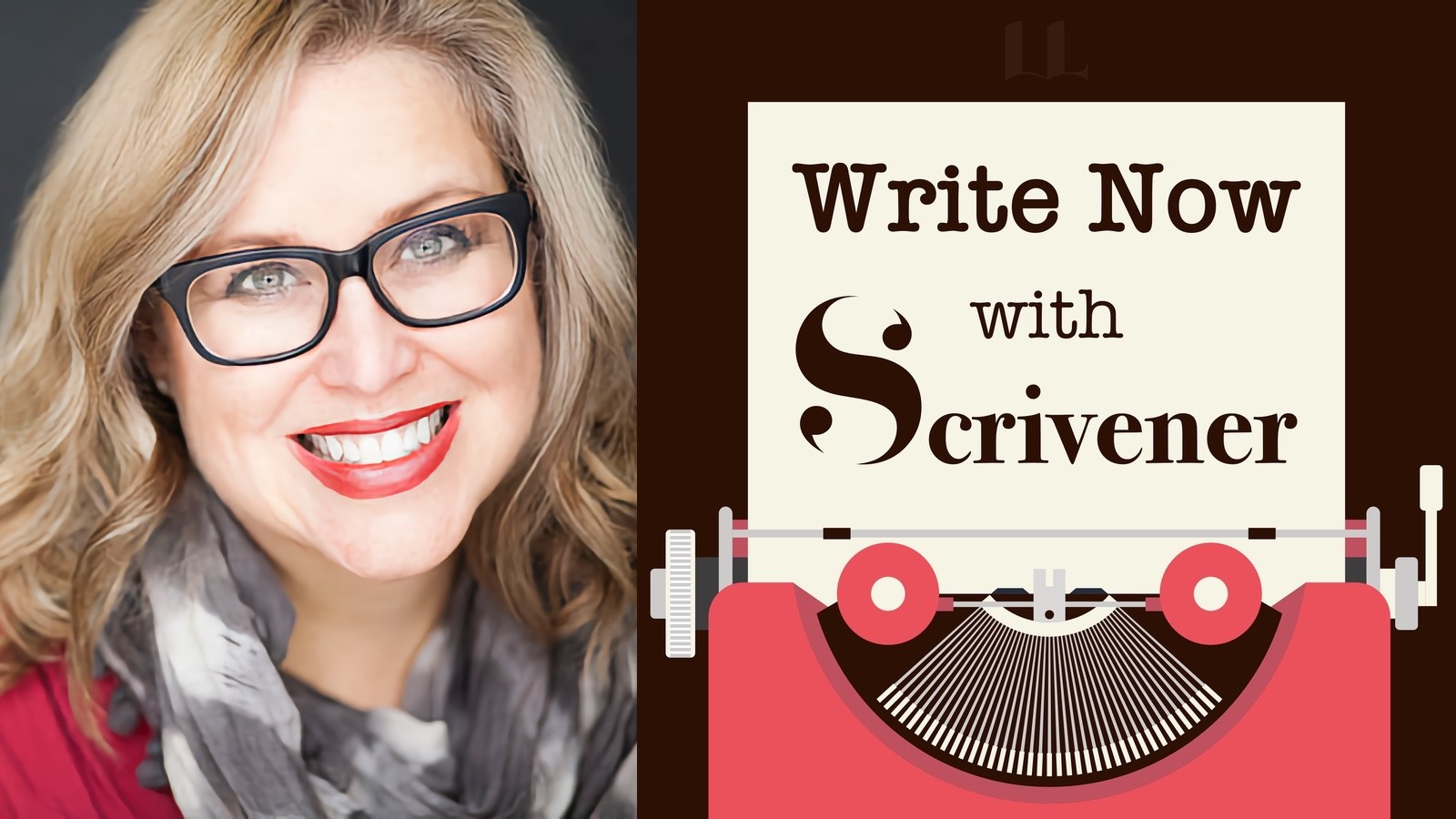We talk with thriller writer J.T. Ellison, who "loves Scrivener with the passion of a thousand fiery suns."
Write Now with Scrivener, Episode No. 3: J.T. Ellison, Thriller Author

J.T. Ellison has written more than 25 novels: standalone thrillers, three series, and has recently published the first in a series of co-authored young adult novels. She co-hosts a literary TV show, and is also a publisher. She also "loves Scrivener with the passion of a thousand fiery suns."
Show notes:
- J.T. Ellison
- Latest book: Her Dark Lies
- Twitter: @thrillerchick
- A Word on Words (TV show)
- Jeff Abbott
- Story Planner
- The Wine Vixen
Learn more about Scrivener, and check out the ebook Take Control of Scrivener.
If you like the podcast, please follow it in Apple Podcasts or your favorite podcast app. Leave a rating or review, and tell your friends. And check out past episodes of Write Now with Scrivener.
We talk with thriller writer J.T. Ellison, who "loves Scrivener with the passion of a thousand fiery suns."
J.T. Ellison is a prolific author of more than two dozen novels and publisher, and has worked in finance, and in the White House. With standalone novels, series, co-authored series, and more, she never stops. She has just published a first co-authored young adult urban fantasy.
For Ellison, writing is her job. "This is what I was meant to do." She overcame early discouragement and worked in politics for a while before getting back into writing in 2003, where she found her true vocation.
Writing for Ellison is also a passion. "I love what I do, I love the work, I love the creation, I love the ideas, I have more ideas than I will ever be able to write."
Ellison has a very structured writing routine. Her goal is to write 1,000 words a day, five days a week, and, unlike many authors, her most creative period is in the afternoon. "I wish I was one of those larks that got up and the very first thing I did was write my 2,000 words."
When Ellison works, she blocks out everything on her computer. She uses Freedom, an app that keeps her from being distracted by the internet. She stresses that being a writer requires a lot of work. "Everybody's got one book in them. Do you have two, do you have ten, do you have 20?" She says you have to "sit down, do the work, roll with the punches, because every career looks like an echocardiogram. And you have to wrap your head around the fact that some people are going to hate what you do. If you can deal with that, then you can probably have a career at it. But you do have to have a little bit of discipline."
I asked Ellison about her name: the use of two initials is common in crime fiction. "When I started, I was writing really dark psychological thrillers. And the trend was to have the initials so that the 'male readers' wouldn't be turned off by the idea of reading a book by a woman, which I think is kind of silly, but it is what it is. You don't want any barriers to entry when you have somebody and you want them to read your book."
J.T. Ellison told me that she "loves Scrivener with the passion of a thousand fiery suns." Her friend, Jeff Abbot, another thriller writer, introduced the app to her, and "it took five books for me to realize the power that this had and to retrain my brain off of scrolling. When you switch to Scrivener it's like Valhalla. Your Binder is the most beautiful thing in the world."
Ellison also takes advantage of Scrivener to not write linearly. "When I was working in Word, it was literally a start to finish kind of process. And I would rarely skip ahead. Now, I can put down whatever I want."
And she uses Scrivener for a new approach to planning that she recently discovered: "I learned a new process called 40 scenes, where you write out 40 scenes. It doesn't have to be a scene, it can just be a line, it can just be 'Olivia is walking on the beach,' 'Olivia has a fight,' you know, really simple stuff. When you have those 40 scenes, if you do writer math, that's 80,000 words. It's not outlining, it's more just a mind dump of all the things that I think might happen in the book. And it doesn't have to have any kind of structure to it. Just get it out there."
She then works with these scenes in her Scrivener project. "I put those in their own manuscript folder, outside of the manuscript itself. And then as I'm doing it, I open that folder and I drag a scene into the manuscript, I flesh it out and write it, and then I do that for all of them."
Ellison uses Scrivener to store everything she needs for her novels: photos, character names, notes, and much more. "I can't think outside of Scrivener now."
Kirk McElhearn is a writer, podcaster, and photographer. He is the author of Take Control of Scrivener, and host of the podcast Write Now with Scrivener.


0 Comments
Please sign in or register to comment on this post.
Register
Sign in
Forgotten password